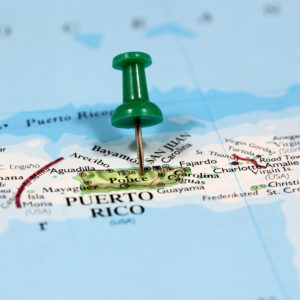Statehood for the District of Columbia is a non-starter particularly for most Republicans, because, well, it’s a general mess politically, and it was never meant to be a state in the first place.
D.C. statehood would also equal two new Democratic senators and a House member. In perpetuity. Until the end of time. Like, till the cows that will never come home, come home.
The same cannot be said of Puerto Rico, because therein lies a far more diverse mindset, it’s a strategic and economic positive, and has a history of Republican representation, undoubtedly due in no small part to socially conservative traditions weaved deeply into the culture.
The Constitution specifically grants Congress, in Article I, Section 8, the power to “exercise exclusive Legislation” over the District and “become the Seat of the Government of the United States.”
Puerto Rico is in a very different circumstance as essentially a colony of the United States with almost three and a half million citizens who have expressed an interest in being the 51st state with no constitutional prohibition on statehood. Puerto Rico has a much stronger constitutional case to become a state.
The will of the people of Puerto Rico is to become a full participant in the political structure of the United States, as evidenced most recently by a 2012 referendum, where its citizens voted for statehood. Currently, Puerto Rico is locked in an odd middle ground of being a “commonwealth” with no right to meaningful representation in Congress or to participate in the choosing of a president.
The voting patterns of Puerto Rico and D.C. could not be more different. Since D.C. was allowed to participate in the Electoral College, not one elector has ever voted for a Republican and since 2008 more than 90 percent of D.C. voters have cast a vote for Democrats for president.
In 1984, when Ronald Reagan won in a landslide election securing 525 electoral votes, the only state to vote for Walter Mondale of Minnesota was Minnesota (by only 0.18%) with the only other electoral votes coming from D.C. that voted 85 percent for Mondale.
There is no debate that if D.C. is made a state, there will immediately be two new Democratic senators, and at least one new Democratic House member. Again, in perpetuity.
The politics of making D.C. a state is simply impossible because Republicans will forever obstruct any legislation that will load up Congress with new Democratic partisans. Simply put, Mars is more likely to become a state before D.C. does.
Puerto Rico would very likely be a purple state. The current delegate from Puerto Rico is a Republican, Jenniffer Gonzalez (not a typo — there are two “f’s”). Luis Fortuno is a former delegate to Congress and governor who is also a Republican.
There is strong support by many of my fellow Republican politicians (and a growing chorus of center-right pundits) for statehood, including Florida governor Ron DeSantis, and Florida Sens. Marco Rubio and Rick Scott.
Yet the support is not limited to Florida — Republicans in the House listed as co-sponsors of a statehood bill pending in Congress include Rob Bishop of Utah; Don Young of Alaska; Doug LaMalfa of California; Cathy McMorris Rogers of Washington state; Don Bacon of Nebraska; Jim Banks of Indiana; Peter King and Elise Stefanik of New York; Brian Fitzpatrick of Pennsylvania; and Joe Wilson of South Carolina.
With Republican support from coast to coast, this issue differs greatly from the fight for D.C. statehood, about which no one outside the Democratic Party establishment seems all that thrilled.
Of course there’s that other point that goes back to the earliest days of our republic — D.C., the federal city, was deliberately designed NOT to be a state.
The platform of the Republican Party adopted at the last two national conventions voiced strong support for Puerto Rican statehood. Both in 2012 and 2016, the platform included language to support Puerto Rico to be admitted to the union.
The platform is part of a negotiation every four years where members of the Republican Party craft a list of issues that the party will support in the next election. The strong official support of the Republican Party, joining the Democrats in supporting it, speaks to the idea that the move would not be an inherently and cynically political one. This is to everyone’s credit.
Jose Fuentes, a former Republican attorney general for Puerto Rico, wrote an opinion article in the Miami Herald titled “Not All Puerto Ricans are Democrats” where he wrote, “Puerto Ricans in Puerto Rico are not liberals. They are conservatives.”
Instead of Congress wasting time on a nowhere-bound D.C. statehood bill, it should focus on an achievable move whose time has come — a bill to grant statehood to the commonwealth of Puerto Rico.

